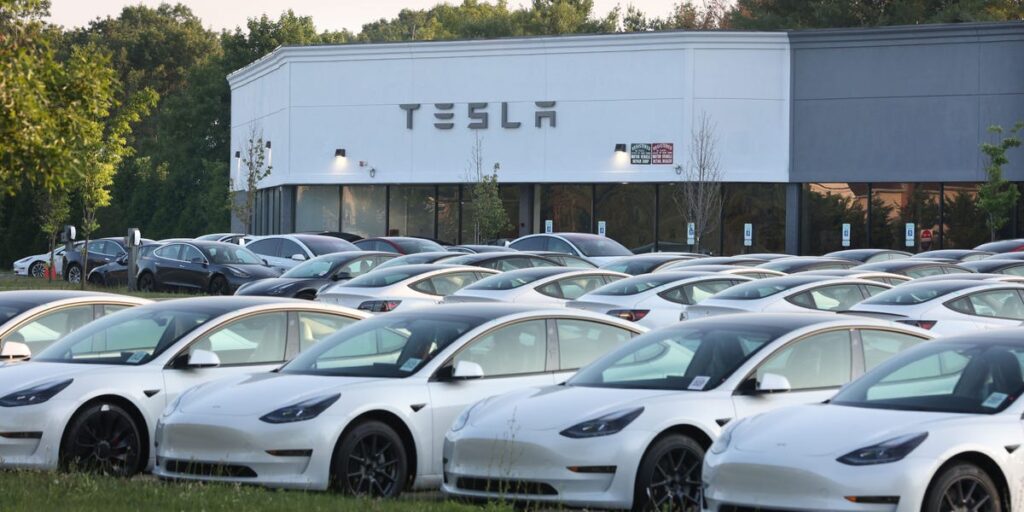The Trump administration is gutting an obscure set of EV regulations, causing EV makers Tesla, Rivian, and Lucid a major headache.
The three companies have all warned in recent weeks that the end of the regulatory credits system — which allows them to make money off electric vehicles their rivals aren’t selling — is set to have a big impact on their profits.
In a petition filed in the DC Court of Appeals earlier this month, EV startup Rivian said that the Trump administration’s regulatory overhaul had left over $100 million in revenue in limbo.
In the same petition, filed by the Zero Emission Transportation Association (ZETA), rival startup Lucid warned that the changes threatened to reduce the market value of regulatory credits that make up a “significant share” of the luxury carmaker’s revenue.
The petition was first reported by The Wall Street Journal. Tesla, which is a member of ZETA but did not feature in the court filing, has also previously warned that it faces a major hit from the regulatory overhaul.
In the automaker’s latest earnings report, Tesla said that the repeal of US federal regulatory credit schemes had contributed to a $1.11 billion decrease in expected revenue, and warned that future revenue may be significantly affected by the changes.
Tesla, Rivian, and Lucid all make money from selling regulatory credits to other carmakers who have failed to sell enough EVs to keep them in compliance with environmental regulations in the US and other countries.
As all three companies only produce electric cars, these credits are essentially pure profit, and they have proven highly lucrative. Tesla pulled in nearly $3 billion last year from selling the credits to rivals.
The Trump administration last month reduced penalties for not meeting fuel economy standards to $0, effectively wiping out the market for regulatory credits.
In the petition filed at the DC Court of Appeals, Rivian’s Senior Director of Public Policy, Christopher Nevers, said that the National Highway Traffic Safety Administration has stopped processing compliance reports until it has completed its overhaul of federal fuel economy standards.
Nevers said that this delay means Rivian can’t finalize already-completed credit sales worth over $100 million, adding that the company had attempted to address the issues with the NHTSA multiple times, to no avail.
The NHTSA did not respond to a request for comment, sent outside normal US working hours.
Rivian, Lucid, Tesla, and ZETA also did not respond to a request for comment.
Read the full article here


